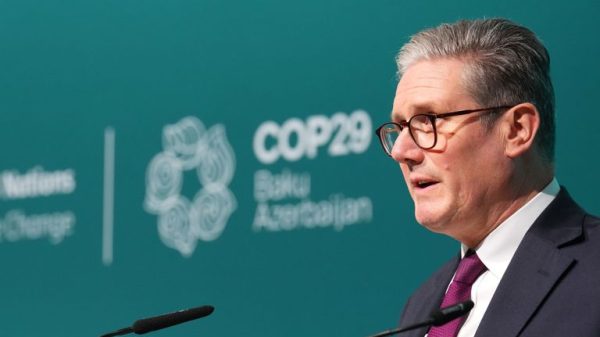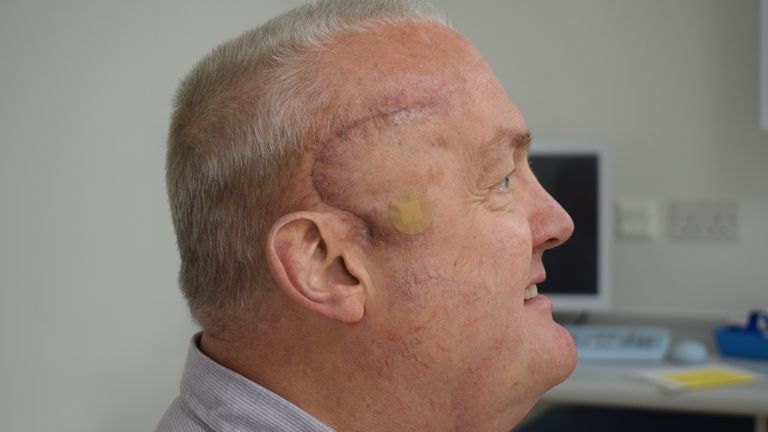A new radioactive therapy has shrunk a man’s deadly brain tumour by half, in what experts hope could be a breakthrough cancer treatment.
Paul Read, a 62-year-old engineer from Luton, noticed he had a severe headache last December. Two weeks later, his wife Pauline was concerned he had a stroke as his face appeared to have dropped on one side.
He was diagnosed with recurrent glioblastoma – a type of brain cancer which kills most patients within 18 months – after doctors found a large mass on his brain.
Despite undergoing an operation on 27 December, followed by courses of radiotherapy and chemotherapy, Mr Read was told in July his tumour was growing again.
“I was fully expecting the tumour to return due to its aggressive nature,” he said. “I know the outcome isn’t great and I was happy to explore anything else.”
He was then offered the chance to become the first patient in a clinical trial aiming to cure the disease, run by the University College London Hospitals NHS Foundation Trust (UCLH).
In the CITADEL-123 trial, surgeons remove as much tumour as possible before implanting a small medical device called an Ommaya reservoir under the scalp, which connects to the tumour via a small tube.
The nuclear medicine team at UCLH then inject a drug – ATT001, which helps repair DNA damage in cells – directly into the tumour to deliver small amounts of radioactivity.
The drug, given weekly for four to six weeks, causes lethal damage to tumour cells but leaves healthy tissue unaffected.
Since starting the experimental treatment, Mr Read has seen his tumour shrink by half in just a matter of weeks.
“This trial was a lifeline, as the likelihood of survival according to the data was a year or less for me,” he said.
“I am delighted to be given the opportunity to be part of this trial and I have not experienced any side effects from the injections.”
“I am feeling very good,” the engineer added. He also said he’s not afraid of the treatment failing to cure his cancer if it can help others.
“We are all dealt a hand of cards and you don’t know which ones you are going to get,” he said.
“It will be wonderful if this treatment helps me and if it doesn’t, it doesn’t.
“I am more than happy – even it if doesn’t benefit me, it may benefit someone else down the line. So I have got nothing to lose and everything to hope for.”
Dr Paul Mulholland, UCLH consultant medical oncologist who designed the trial, said the reduction of Mr Read’s tumour “is really quite remarkable for somebody whose tumour is so aggressive”.
“We have to aim to cure this disease,” he said. “Primary brain tumours do not metastasize around the body and generally stay in the same location in the brain.
“It doesn’t spread to the rest of the body, so using a targeted – directly into the tumour – approach makes sense.”
A second patient is currently undergoing the same procedure, with one being treated a month by the team, and Dr Mulholland said the trial aims to have up to 40 patients treated.
The dose of radiation will be increased throughout the trial and researchers plan to combine ATT001 with immunotherapy – which trains the body’s immune system to kill cancerous cells.
While he said early signs are promising, Dr Mulholland noted the trial is a “first-in-human study so we’ve been cautious in our approach and are only treating patients for six weeks”.



























